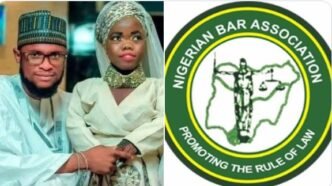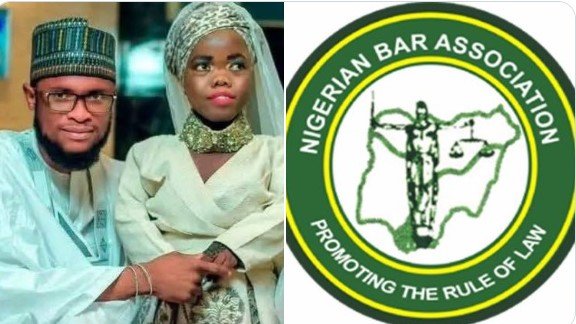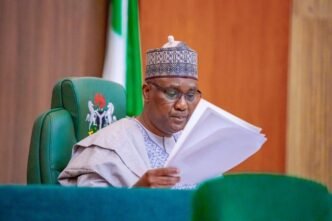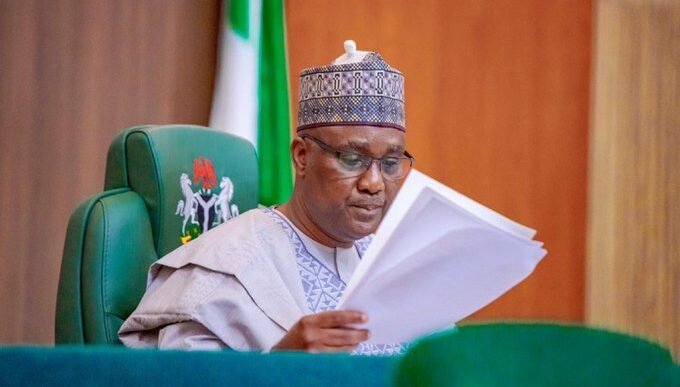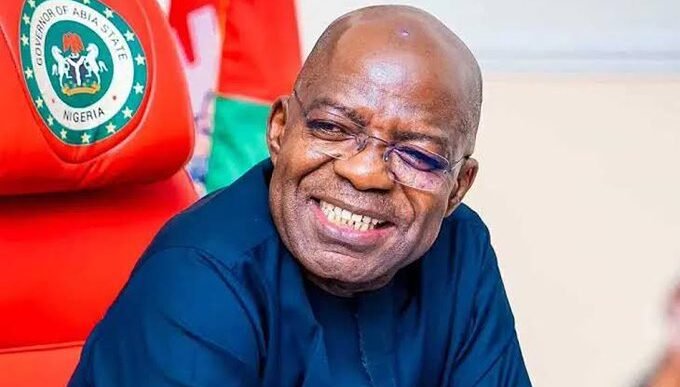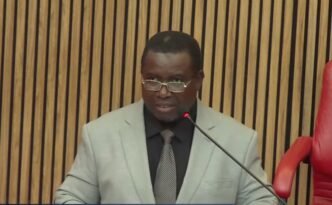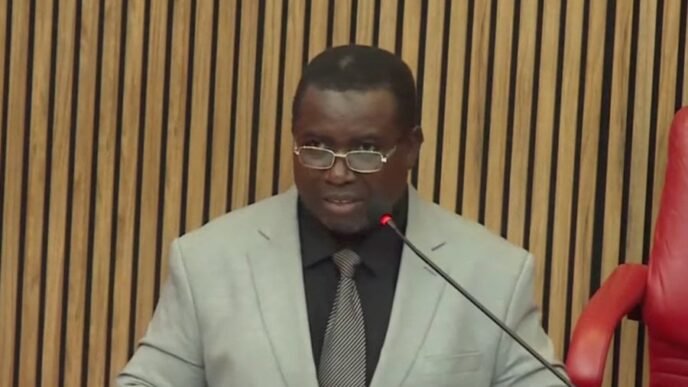Abuja, Nigeria — October 21, 2025
The Nigerian Bar Association (NBA) has strongly criticized the Kano State Magistrate Court over its controversial ruling allegedly ordering two popular TikTok content creators — Idris Mai Wushirya and Basira Yar Guda — to marry each other within 60 days as part of their punishment for producing “indecent” online videos.
The association described the ruling as unconstitutional, illegal, and a violation of fundamental human rights, stating that no court in Nigeria has the power to compel marriage between two adults without their mutual consent.
The court’s decision, which has stirred national outrage and widespread debate across social media, was reportedly issued following the arrest of the two influencers for allegedly posting videos deemed “immoral and indecent” by authorities in Kano State.
Background: The Viral Case of Wushirya and Yar Guda
The controversy began when Idris Mai Wushirya and Basira Yar Guda, both well-known TikTok entertainers in Northern Nigeria, were arraigned before a Kano Magistrate Court on charges of public indecency and immoral conduct.
According to reports, the court found the duo guilty of posting videos that “contradicted the moral values and cultural norms” of the state, and subsequently ordered them to marry each other within 60 days as part of their penalty.
The ruling sparked widespread criticism from human rights advocates, legal professionals, and civil society groups, who described it as a blatant abuse of judicial authority.
NBA’s Response: “A Marriage by Compulsion Is No Marriage at All”
Reacting to the development, the Nigerian Bar Association (NBA), through its National Publicity Secretary, Akorede Lawal, issued a statement condemning the court’s decision.
“The reported order of a magistrate court in Kano directing two individuals to marry each other within 60 days is unconstitutional, null, and void,” the NBA said. “No provision of Nigerian law grants a court the power to compel a marriage between two citizens.”
Lawal emphasized that marriage is a voluntary union governed by the Marriage Act and customary or Islamic law, all of which require the consent of both parties as a fundamental precondition.
“A marriage entered into without consent is invalid and amounts to a violation of the right to personal liberty as guaranteed under Section 35 of the Constitution of the Federal Republic of Nigeria (1999 as amended),” he added.
Legal Experts Weigh In
Several constitutional lawyers have echoed the NBA’s position, warning that the Kano court’s order sets a dangerous precedent that undermines the rule of law and fundamental human rights.
Barrister Abdulrahman Sani, a constitutional law expert based in Abuja, described the ruling as “judicial overreach.”
“There is no legal framework — under Sharia, Customary, or Statutory Law — that empowers a magistrate to compel two adults to marry. Marriage in all recognized legal systems in Nigeria must be consensual. This order, if true, cannot stand in any appellate court,” he said.
Similarly, human rights lawyer, Inibehe Effiong, condemned the decision, saying it amounted to “judicial misconduct and an affront to basic freedoms.”
“If the report is accurate, the order violates sections 34 and 37 of the Nigerian Constitution, which protect citizens’ rights to dignity and privacy,” Effiong noted. “It is unconstitutional, discriminatory, and morally indefensible.”
Public Outrage and Reactions
The case has dominated social media discussions, with thousands of Nigerians expressing shock at what many describe as “state-sponsored coercion”.
On X (formerly Twitter), hashtags such as #KanoCourt and #TikTokMarriageOrder have trended for hours, with users calling on the National Judicial Council (NJC) to investigate the conduct of the presiding magistrate.
Some commentators also pointed out the gender bias often faced by women accused of “indecent behavior” in conservative regions, warning that the ruling could embolden moral policing and violations of personal freedoms.
“This is not about morality; it’s about misuse of judicial authority,” wrote one user. “If a court can order people to marry, what next — forced conversion or mandatory dress codes?”
Possible Disciplinary Action
Sources within the legal community say the NBA’s Human Rights Committee is already considering a formal petition to the Kano State Judicial Service Commission and the NJC, seeking disciplinary action against the magistrate who issued the order.
A senior member of the NBA in Kano, who spoke on condition of anonymity, confirmed that discussions are ongoing to determine whether the magistrate acted beyond jurisdiction.
“If verified, this ruling represents a breach of judicial ethics and human rights. The NBA will not allow such abuse of the judicial process to go unchallenged,” the source said.
Rights Groups Demand Accountability
The Civil Rights Defenders (CRD), Amnesty International Nigeria, and several feminist advocacy organizations have also called on the judiciary to rescind the alleged order immediately, describing it as a breach of international human rights conventions to which Nigeria is a signatory.
Osai Ojigho, former Director of Amnesty International Nigeria, said the reported ruling violates both Article 16 of the Universal Declaration of Human Rights and Article 6 of the African Charter on Human and Peoples’ Rights, both of which recognize the right to marry based solely on free and full consent.
“Forced marriage is a human rights violation. The Nigerian judiciary must not lend itself to cultural extremism or moral policing under the guise of justice,” Ojigho said.
Government Yet to Respond
As of the time of filing this report, neither the Kano State Government nor the Ministry of Justice has issued an official statement on the matter.
However, legal observers expect that the Attorney General of Kano State may be compelled to review the ruling, especially if petitions from the NBA and human rights organizations are formally filed.
A senior government official hinted that the case could be re-examined once a written judgment or court record is obtained.
“It’s important to separate social media reports from verified judicial records,” the official said. “If the court did issue such an order, it would have to be vacated on appeal immediately.”
Broader Implications for Judicial Integrity
Legal analysts warn that the alleged court ruling could tarnish Nigeria’s image internationally, especially regarding gender equality and human rights protections.
Dr. Chika Okafor, a lecturer in law at the University of Abuja, said the incident underscores the urgent need for judicial retraining and human rights education for magistrates across the country.
“This case raises questions about how well-equipped our lower courts are to handle matters involving morality and culture,” Okafor said. “Courts must interpret law, not enforce religious or cultural sentiments.”
He noted that under Nigerian law, particularly the Marriage Act of 1990, the consent of both parties is an essential element of marriage. A union entered under duress or compulsion is void ab initio (invalid from the beginning).
What Next for the TikTokers?
As of Tuesday, it was not immediately clear whether Idris Mai Wushirya and Basira Yar Guda have appealed the ruling or filed for a judicial review. Their legal representatives have yet to make a public statement.
However, sources close to the influencers said they are considering challenging the decision through the Kano State High Court, with support from human rights lawyers and civil society groups.
“They have the right to appeal this unconstitutional ruling,” said a source familiar with the case. “No one should be forced into marriage as punishment.”
NBA Calls for Judicial Reform
The NBA concluded its statement with a call for urgent judicial reforms, urging the National Judicial Institute (NJI) to intensify human rights training for magistrates and judges across Nigeria.
“Our judiciary must be guided strictly by constitutional principles and the rule of law,” Lawal said. “No judicial officer should substitute personal morality for legal reasoning.”
He reaffirmed the NBA’s commitment to defending the rights and liberties of Nigerians, adding that the association would continue to monitor the case closely to ensure that justice is upheld.

